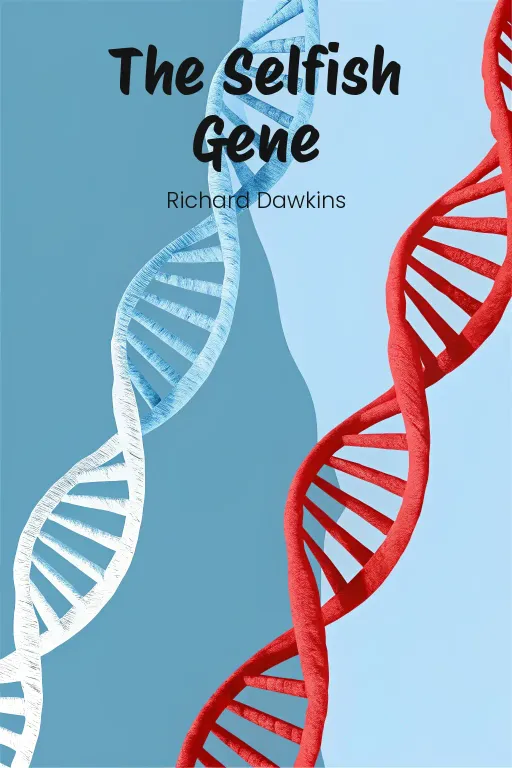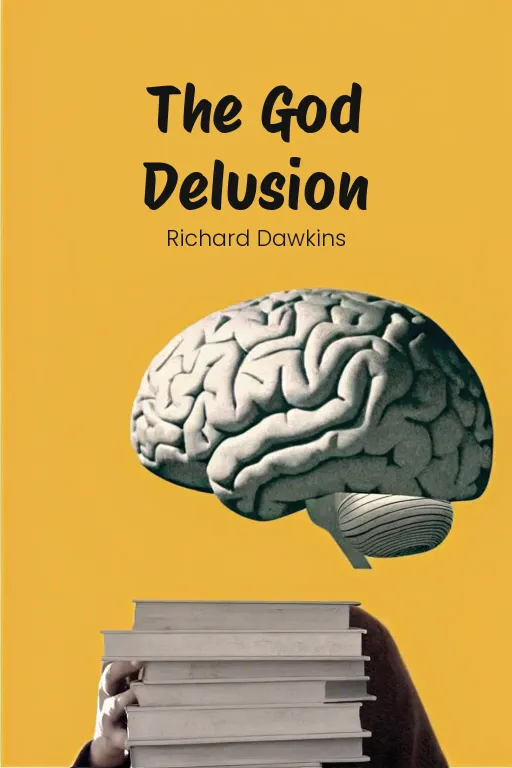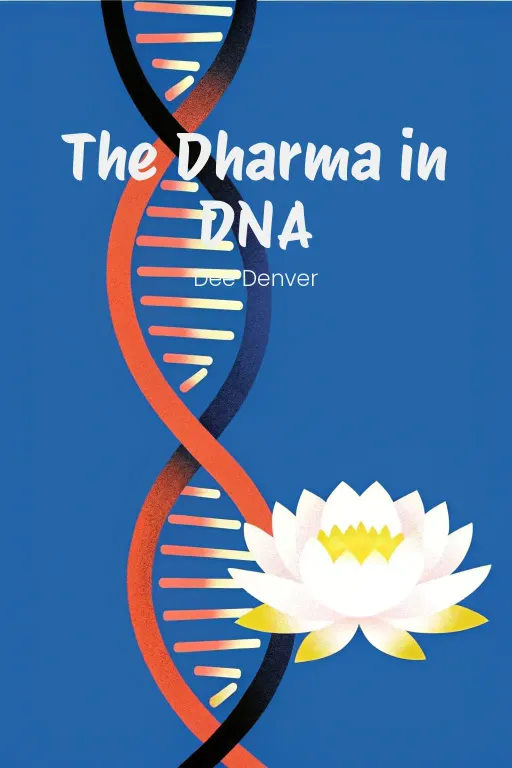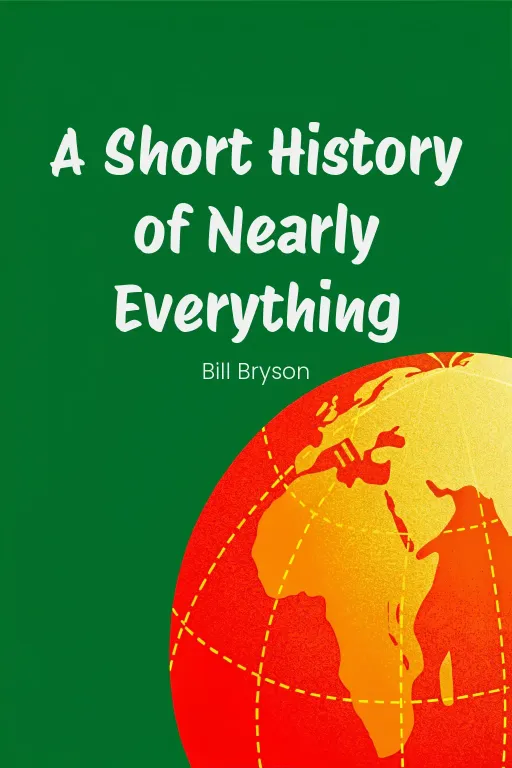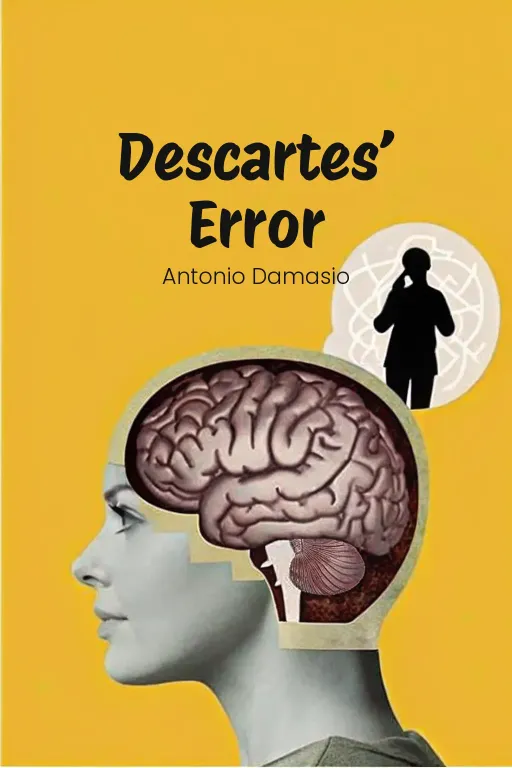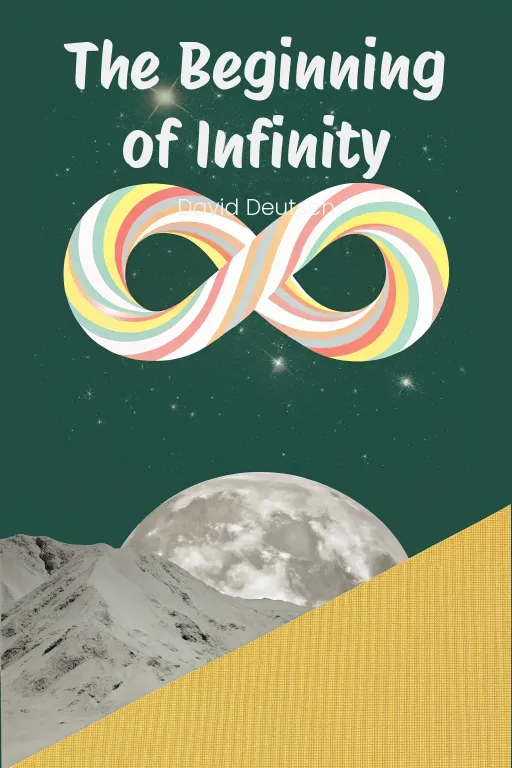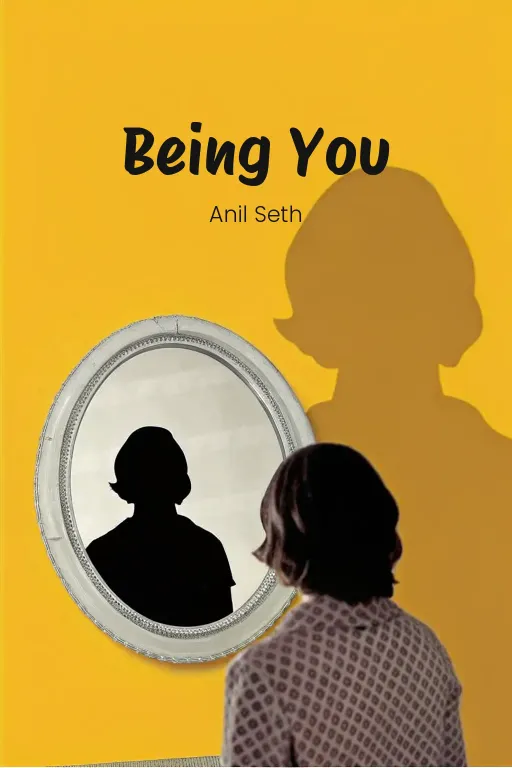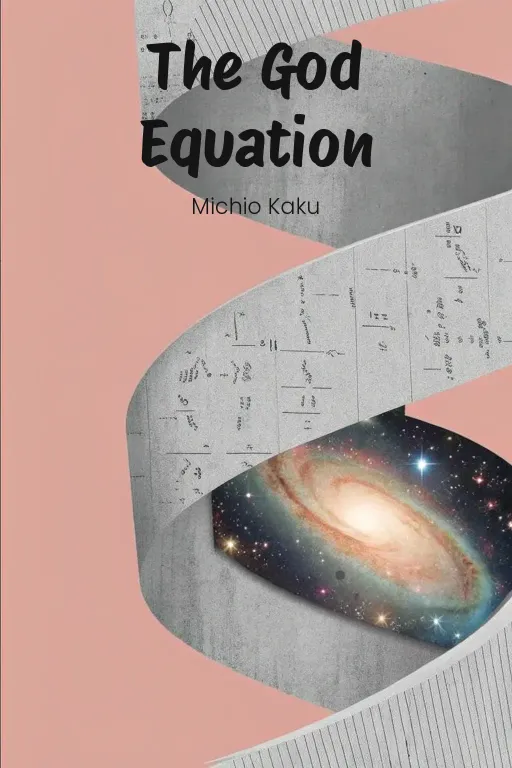
Dismantling Dogma: Think Freely
Podcast by Wired In with Josh and Drew
The Science behind Atheism
Dismantling Dogma: Think Freely
Part 1
Josh: Hey everyone, and welcome back to the show! Today, we're tackling a real firecracker of a book: The God Delusion by Richard Dawkins. Get ready, because this one doesn't pull any punches. It challenges, it provokes, and it takes a hard look at beliefs held by billions. Drew: Ah, Dawkins. So, I'm picturing a healthy dose of scientific backbone, some philosophical sparring, and maybe a controversial zinger or two thrown in for good measure? Josh: Spot on! Basically, he's trying to show that belief in a supernatural God isn't supported by science at all. Instead, he argues it's more like an evolutionary quirk – a glitch, if you will, in how our brains are wired. And he doesn't just stop at questioning God. He goes on to suggest that morality, purpose, and progress can totally flourish without religion. Drew: Whoa, so he’s not just saying religion is unnecessary, but that it might actually be hindering progress? That's a pretty strong statement. Okay, so where are we going with this? What exactly are we digging into today? Josh: We're going to break down three key ideas from the book. First, Dawkins tackles the "God Hypothesis" and the lack of evidence supporting it. He really dissects the classical arguments for God's existence, carefully pointing out the logical fallacies. Think of it like dismantling a house of cards built on faith. One card at a time. Drew: Yeah, I can imagine that's not going to go down too well with those who find real comfort and meaning in those arguments. Josh: Secondly, we'll explore how religion might be an evolutionary byproduct of the human psyche. Instead of religion being some divine master plan, Dawkins presents it more as an unintended consequence of things like our tendency toward tribalism and our knack for pattern recognition. Drew: So, faith is basically a trick of the mind? Huh. Actually, that kinda makes sense in some ways. Josh: Exactly! And finally, we'll dive into how morality can stand strong without a divine law-giver looming over us. Dawkins champions a morality rooted in reason and empathy. He believes we don't need sacred texts or a celestial police force to be good. Drew: No commandments handed down from on high? This is definitely going to turn some commonly held beliefs upside down, isn't it? Josh: Absolutely! Think of this as not just a critique of religion, but more like a call to embrace skepticism, humanism, and scientific understanding as the solid foundation for a richer and more meaningful life. A true call to action to think for ourselves.
The God Hypothesis and Scientific Scrutiny
Part 2
Josh: Okay, so picking up where we left off, let's dive right into Dawkins' first big idea: the "God Hypothesis" under scientific scrutiny. Basically, he’s saying we should evaluate the idea of a supernatural creator just like any other scientific claim. Drew: And when he says "evaluate," he means really put it through the wringer, right? Strip it down, look at it from every angle. Which, I imagine, is pretty tough for ideas built on, well, faith. So, how does Dawkins actually do this? Josh: He treats the God Hypothesis like it's a scientific theory, claiming that a supernatural intelligence designed and governs the universe. The key thing is, Dawkins insists this hypothesis doesn’t get a free pass just because it's about the divine. It needs to offer evidence, and it needs to stand up to scrutiny, just like anything else. Drew: Fair enough. If I claimed I saw a unicorn in my backyard, you'd want proof, wouldn’t you? Photos, footprints, something! Not just, "trust me, it was majestic." Josh: Exactly! And Dawkins goes on to systematically dismantle the classic philosophical arguments for God’s existence, you know, the ontological, cosmological, and teleological arguments. Drew: Alright, let’s tackle the ontological one first. Isn't that the whole "God is perfect, therefore God exists" thing? Josh: Spot on! It’s Saint Anselm's brainchild from way back in the 11th century. He basically said if we can imagine the greatest possible being, then that being must exist, because existence is part of being perfect. Drew: So, just by defining God as perfect, boom, existence proven? Seems a bit… convenient. Josh: Dawkins tears that apart. He points out the circular logic. Just because you can imagine something doesn’t make it real. It's like me saying the perfect island exists because I can picture it – white sands, crystal-clear waters, a mansion with unlimited Wi-Fi. Thinking about it doesn't make it there, you know? Drew: Ah, shame. That island did sound amazing. Okay, what about the cosmological argument? The whole "first cause" idea, right? Josh: Exactly! Made famous by Thomas Aquinas. It’s the idea that everything has a cause, so there must have been an uncaused cause at some point, which we call God. But Dawkins argues that this simply pushes the problem back a step. If everything needs a cause, then why doesn't God? Drew: Ah, a classic double standard. The universe needs an "unmoved mover," but God gets a free pass? It’s like solving a riddle by introducing an even bigger riddle. Josh: That’s exactly Dawkins’ point. Saying "God did it" doesn’t solve the mystery of existence. It just adds another unexplained entity to the equation. And for Dawkins, science offers better alternatives – like the Big Bang and natural processes – rather than just saying it’s divine intervention. Drew: Even if those alternatives leave us scratching our heads, they at least have evidence and math behind them, not just, "because the Bible says so." Josh: Precisely. Then we get to the teleological argument, or the argument from design. This claims the complexity of nature – like the human eye – proves there must be a designer. Drew: Ah, I knew creationists would bring up the eye. It's their go-to example! They say it’s too complex to have just… happened. Josh: And Dawkins brings in evolutionary biology to break down that idea. Natural selection shows how complexity can develop over time through small, advantageous changes. The eye's evolution is a perfect example. Drew: So, the eye wasn’t just, you know, poof, magically created? Josh: No magic required. Dawkins traces it back to light-sensitive cells in simple organisms. These gave even a tiny survival advantage. Over generations, those cells changed into better detection tools – concave shapes, primitive lenses, and eventually the complex eyes we see today. Drew: Okay, so nature took its time, like a very patient sculptor. Little improvements, and then, bam! No need for a cosmic watchmaker building eyeballs in the sky. Josh: Exactly! Dawkins uses this to show how complexity can emerge naturally, without needing a designer. And that leads us to one of his most famous analogies: the "Ultimate Boeing 747." Drew: Oh, I've heard of this – something about a hurricane randomly assembling a jumbo jet from a junkyard? Meant to show why life must have a designer, right? Josh: Precisely. Some use the analogy to argue for a designer, but Dawkins flips it on its head. He says that invoking God doesn't solve the problem of improbability - it makes it worse. A designer creating something complex like the universe would have to be even more complex and improbable. Drew: So, if the Boeing 747 can't assemble itself, you're saying we shouldn't replace it with an entire alien aircraft carrier and call it a day? Josh: Exactly. The God Hypothesis just adds layers of complexity, rather than resolving them. Science simplifies our understanding with theories like natural selection, which explain complexity without needing an architect. Drew: It's like trading messy metaphysics for Occam's Razor; the simplest explanation is usually correct. Josh: And that’s why Dawkins sees evolutionary biology as a game-changer. By showing complex systems – like the eye or life itself – can arise through a systematic process without direction, there’s no longer the need to lean on God as the explanation. It’s a pretty powerful argument against any idea of divine design. Drew: And it's humbling, too. It frames life as less of a carefully planned project by an all-powerful being, and more of a wild, beautiful result of time, chance, and adaptation. Josh: Exactly! That’s what makes it so profound. The explanation comes from observable, testable mechanisms of nature, not mysticism. For Dawkins, that's far more satisfying – and awe-inspiring – than just attributing it all to magic. Drew: So, in effect, he’s demonstrating that science doesn’t just disprove God; it replaces the need for God, at least when it comes to understanding how we got here. Josh: Exactly! And that’s the core of Dawkins’ critique of the God Hypothesis. By using scientific scrutiny, he rejects the idea of a divine creator and shows that natural processes are much better at explaining the complexity of the world.
Religion as a By-Product of Evolution
Part 3
Josh: We’ve established that the God Hypothesis lacks empirical support. Now, Dawkins takes an interesting turn, suggesting that religion persists, not because it's divinely inspired, but as a by-product of evolution. It's fascinating how he bridges the scientific critique of belief with the enduring nature of religion, despite the lack of hard evidence. Drew: So, if I get it, Dawkins is saying religion isn't deliberately “engineered," but kind of snuck into our lives through evolutionary quirks? Like an unintended consequence? Josh: Exactly. He posits that certain traits in human psychology, which aided our ancestors' survival, inadvertently paved the way for religious ideas. Think of religion as an unintentional side effect, like smoke from a fire. No grand design at play. Drew: Smoke from a fire, huh? So, what evolutionary “fires" are we talking about here? What traits did human evolution cook up that gave us religion on the side? Josh: Well, Dawkins highlights two main things: childhood gullibility and dualistic thinking. Let’s start with childhood gullibility. Human children evolved to trust their elders, no questions asked, because that trust was crucial for survival. If a parent said, “Stay away from that river, there are crocodiles,” the child who obeyed survived. A clear evolutionary advantage. Drew: Right, makes sense. So, kids who questioned their parents—like, “Oh really, Mom? I don’t see a crocodile”—probably didn’t live long enough to reproduce. Josh: Precisely. But this otherwise adaptive trait has a downside: kids are also likely to accept cultural myths and supernatural ideas with the same unquestioning trust. So, when parents say, “The thunder is God’s angry voice,” or, “Pray to the rain gods,” those stories stick. Over time, these beliefs become ingrained in the culture. Drew: Ah, so you’re saying religion piggybacked on the survival mechanism of “listen to your elders or die.” What starts as useful advice turns into, you know, mythology. Josh: Exactly. Think of it as an evolutionary loophole. Then there’s dualistic thinking—our tendency to see the world as divided into physical and non-physical realms. Humans have an instinct to see intentional agents behind events: a rustling bush that might hide a predator, or lightning that seems purposeful and angry. Early humans who were hyper-alert to potential threats—better safe than sorry—had higher survival rates. Drew: So, humans evolved to think that something’s always watching us, whether it’s a lion in the grass...or a deity watching from on high? Josh: That's the idea. This inclination to see intentionality everywhere led to anthropomorphizing natural phenomena. A storm wasn’t just weather—it became the wrath of a god. Dualistic thinking turned random events into purposeful acts, which eventually gave rise to religious explanations. Drew: Okay, let me see if I’ve got this. Our ancestors’ overactive imaginations, combined with their tendency to trust authority figures, accidentally birthed God? That’s the punchline? Josh: In a nutshell, yes. Religion wasn’t part of some divine plan. It was, in Dawkins’ words, “a by-product of useful evolutionary adaptations.” Drew: Okay, but it’s one thing for these beliefs to pop up. How do they stick around? Why aren’t cargo cults—or even older religions—phased out over time as better explanations emerge? What stops people from waking up and smelling the coffee? Josh: That’s where Dawkins’ memetic theory comes in. He sees religion as a cultural replicator, a meme. Like a gene, a meme spreads and evolves, not because it’s true, but because it’s good at replicating itself. Religious memes have characteristics—rituals, moral rules, promises of heaven or threats of hell—that make them very "sticky.” Drew: Memes as cultural survival units? So religion is, like, that viral TikTok song I can’t get out of my head—it sticks not because it’s profound, but because it’s catchy. Josh: Exactly. Dawkins explains how these "catchy" ideas propagate within societies. A perfect example is the cargo cults. During World War II, isolated Pacific islanders saw Westerners arriving on planes, bringing unimaginable goods—or "cargo." Not understanding how the technology worked, they thought it must be divine intervention. Drew: So they started mimicking what they saw doing—building fake airstrips, wooden planes, basically trying to summon the "cargo gods." That’s a little bizarre, to be honest. Josh: Bizarre, yes but it’s telling. The cargo cults show how human psychology creates religious beliefs to explain the inexplicable. These rituals brought social cohesion and provided meaning, which made the belief systems more resilient. Leaders emerged within these cults, interpreting rituals and "messages" from the divine, giving the memes, you know, even more staying power. Drew: So the rituals weren't just about cargo—they became a way for the community to make sense of the world and stick together. Kind of like a sports team that unites everyone around a shared goal, even if the goal’s kinda based on a misunderstanding. Josh: Exactly. Dawkins argues that this dynamic isn’t exclusive to cargo cults. It applies broadly to how and why religion persists across cultures. Once established, religious memes thrive by leveraging features, like rewards (heaven) or threats (hell), rituals that foster in-group loyalty, and doctrines that frame skepticism as heresy. Drew: So religion survives not because it’s true, but because it’s designed—well, evolved—to be a master at self-preservation. It’s comforting, it’s social, and it comes with a built-in “Do Not Question” sign. It’s brilliant, in a way. Josh: That’s what Dawkins means when he talks about religion exploiting emotional and psychological vulnerabilities. It connects with our need for purpose, answers to life’s big questions, and a sense of belonging. Even in the face of scientific progress, those emotional appeals have kept religion deeply embedded in human cultures. Drew: And yet, Dawkins isn't letting it off the hook just because it feels good. He’s like the scientist standing in the middle of this comforting mirage, shouting, “It’s not real!” Josh: Exactly. Dawkins acknowledges that religion taps into something fundamentally human, but he challenges us to see it for what it is—a by-product of evolution, not a truth handed down from the heavens. For him, understanding its origins helps dismantle its mystique, clearing the path for rational inquiry and humanistic values. It's about empowering people to think for themselves. Drew: It’s a bold move, but it makes sense. If religion’s roots are psychological rather than divine, then we have no reason to treat it as sacred, or beyond critique, right? Like everything else, it’s open to discussion. Josh: Exactly. By tracing religion back to its evolutionary beginnings, Dawkins deconstructs the divine aura that surrounds it, challenging us to build meaning and morality based on reason, not superstition. To create our own values.
Morality Independent of Religion
Part 4
Josh: So, after laying out how religion might have started, Dawkins dives into the moral implications of religious belief and its impact on society. He “really” challenges this idea that morality is rooted in religion, arguing instead for a solid, evidence-based moral framework that doesn't need divine commandments. Basically, he's saying ethical principles can stand on their own two feet without religion. Drew: Whoa, hold on. That's a bold statement, Josh. I think most people link moral values—you know, things like kindness, honesty, fairness—directly to religious teachings. Isn't "The Ten Commandments", like, the classic example of divine moral guidance? Josh: Exactly! And that's what Dawkins is taking aim at. He says that morality actually predates religion, that concepts like altruism and cooperation are kind of built into us through evolution. These aren't behaviors handed down from above; they arose because they helped our ancestors survive and thrive as communities. Drew: Altruism as a survival tool? Interesting. So, we're wired to be "good" for reasons that have nothing to do with religion or spirituality? Josh: Precisely. Dawkins explains this through things like “kin selection” and “reciprocal altruism”, both of which show how moral behavior has evolutionary roots. So, let's start with kin selection. It's basically the idea that you're more likely to be altruistic towards your blood relatives because protecting shared genes ultimately helps your own evolutionary success. Drew: That makes sense. It's like being programmed to look out for your family, even if it costs you. But do we see this in action? Josh: Oh, for sure. Dawkins points to ants as a prime example. Worker ants give up their own chance to reproduce to serve the queen and the colony. Seems selfless, right? But their genes are still being passed on indirectly through the queen's offspring. So, their survival instincts are “really” aligned with protecting the colony. Drew: Okay, ants might not be writing poems about moral sacrifice, but I get the gist. Can we apply that to us humans? Josh: Absolutely. Think about how naturally protective people are of their kids or siblings—those with whom they share a lot of DNA. That inherent drive to care for your close relatives is an adaptation that leads to what we recognize as moral behavior. Drew: Right, families I understand. But what about strangers? Why do we sometimes feel compelled to help someone we're not related to? Josh: That's where “reciprocal altruism” comes into play. It's the idea that helping others outside your immediate family can actually benefit you in the long run because it builds trust and encourages mutual aid. A great example? Vampire bats. Drew: Vampire bats? Okay, you've got my attention. Josh: Seriously! Vampire bats often fail to find food on any given night, but they need blood to survive. When one bat is unlucky, another bat will actually regurgitate some of its meal to share. It's a risky act of generosity, but it pays off. The idea is that today's giver could be tomorrow's receiver. Drew: So, even bats operate on the principle of "What goes around comes around"? It's pretty solid evidence that cooperation isn't just a human thing, or a divine thing either. Josh: Exactly. Dawkins highlights this to show that our inherent altruism isn't the result of divine intervention. It's an evolutionary strategy that helps ensure survival by fostering social cooperation. Over time, these behaviors become part of our makeup and a foundation for moral systems. Drew: Okay, let's say morality is rooted in biology, which is definitely interesting. But if that's the case, why do we still need so many laws and cultural norms to keep people in line? Shouldn't these instincts be enough? Josh: Well, that's where Dawkins points to human societies developing what he calls “universal moral principles”. Across cultures you find similar values such as fairness, justice, and kindness. And these arose not because of religion, but because they worked—they contributed to the success and stability of communities. Drew: So, are you saying these universal values existed before religion came along and tried to claim credit for them? Josh: Exactly. Think about it: even societies without shared religious texts seem to end up with similar taboos against things like murder or theft. Dawkins uses the example of moral thought experiments, like “trolley problems”. These scenarios ask you whether you'd sacrifice one person to save a group of others. In study after study, people across all kinds of different cultures show similar moral decision-making patterns, religious background aside. Drew: It sounds like we all share a lot of the same gut instincts about what's right and wrong. Makes you wonder why religion insists it's the sole provider of those instincts. Josh: Dawkins argues that religion often takes these moral intuitions, codifies them, and then claims ownership. But “really”, he says, our sense of morality comes from evolution, empathy, and cultural experiences, not divine revelation. Drew: But what about the argument that divine commandments provide clarity and consistency? Without religion, couldn't morality just devolve into chaos? I could see people running around saying, "Well, my gut told me this," and someone else saying, "Nope, my gut told me the opposite!" Josh: That's a “really” important question, and it leads us to Dawkins' critique of “moral absolutism”, which is the notion that morality is fixed, unchanging, and dictated by some divine authority. He points out the very real dangers of rigidly sticking to religious texts that may no longer align with modern ethical standards. Drew: Let me guess, you have an example or two? Josh: Oh, I do. One well-known case is the “Inquisition”, where religious authorities used torture and executions to enforce purity of doctrine. Now, defenders of moral absolutism might say those methods were justified in their religious context. But from a humanistic perspective—focusing on compassion and justice—it's clear how sticking to dogma led to huge harm. Drew: Yes, that's one of the tricky parts about clinging to fixed principles. They can kind of resist progress, even when society grows beyond outdated norms. Josh: Exactly. Dawkins gives another example: slavery. Religious texts have often condoned or even prescribed slavery, like the Bible’s mentions of how to treat slaves. And yet, abolition movements were often driven by secular reasoning and empathy—the idea that human dignity should supersede ancient texts. Drew: So, morality doesn't just move beyond religion—it actually gets better without it? Wow, that's quite the thought. Josh: It is! And that relates to Dawkins' idea of the “moral zeitgeist”. He argues that our collective sense of ethics changes over time. What's considered moral in one era might be abhorrent to a later generation, and these shifts often happen not because of, but in spite of, religious teachings. Drew: Like, take gender equality. I'm sure you won't find much on feminism in most holy texts, but here we are, making strides in that area. It seems like progress doesn't wait for divine approval. Josh: Exactly. Dawkins sees this as evidence that morality is guided by cultural, philosophical, and scientific advancements, not fixed dogma. Human morality is flexible, which means it's equipped to deal with challenges that older religious frameworks couldn't have even imagined. Drew: So, morality evolves as we do, which is a hopeful thought. Josh: Absolutely, and that's Dawkins' ultimate conclusion: Morality independent of religion isn't just possible—it actually thrives. Ethical principles built on empathy, reason, and our shared humanity are more inclusive, more adaptable, and “really” more in tune with the world we live in today.
Conclusion
Part 5
Josh: So, in conclusion, Dawkins basically argues that believing in a supernatural deity just doesn't hold up to the kind of evidence we'd expect for, well, any serious theory. He “really” breaks down those old arguments for God's existence and shows how natural selection offers a much cleaner and more evidence-backed explanation for all the complexity we see around us. Drew: Right, he also kind of turns the tables on religion itself, suggesting it's not some divine truth but instead, a side effect of evolution—like a hitchhiker tagging along, using our natural tendencies like trust and our ability to spot patterns. And the reason it sticks around? It's great at replicating itself, thanks to social and psychological factors, not because it's actually, you know, “true”. Josh: Absolutely. And when it comes to morality, Dawkins makes a strong case that we don't need religion to be ethical. Morality, he says, evolves naturally from things like empathy, cooperation, and our shared human experiences. So instead of leaning on ancient dogmas, we can adopt flexible principles based on reason that evolve along with the times. Drew: Okay, so here's something to chew on: If science, empathy, and reason give us a clearer picture than divine mystery, then what's holding us back from ditching those outdated frameworks? Maybe the real challenge isn't just questioning religion, but having the guts to see the world as it “really” is and trusting ourselves to find meaning. Josh: Yes, exactly! Dawkins encourages us to live with a sense of curiosity and courage. Maybe the universe wasn't designed specifically for us, but isn't it incredible that we're able to understand it, improve it, and just marvel at its complexity? Drew: Definitely a question worth asking ourselves. And maybe the real miracle isn't the universe itself, but our ability to understand it and shape it. Just a thought.
